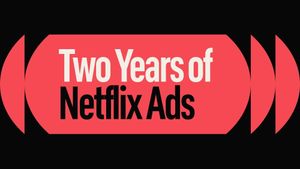Mattel's latest marketing blunder has turned the spotlight away from the much-anticipated premiere of the Wicked film adaptation and instead shone it on an unintended and somewhat scandalous topic: porn. The toy giant mistakenly printed the URL for Wicked Pictures, an adult film company, on the packaging of their Wicked dolls, leading to widespread fallout, public outcry, and even unexpected financial opportunities for collectors.
The Wicked dolls, inspired by the beloved Broadway musical and its film adaptation, were released just before the movie's debut on November 22, 2024. Consumers were excited to purchase merchandise featuring the main characters, Elphaba and Glinda, portrayed by Cynthia Erivo and Ariana Grande. But as shoppers flocked to stores like Target and Walmart, they were surprised to discover the dolls came with a packaging error directing users to www.wicked.com—a URL belonging to Wicked Pictures, rather than the intended www.wickedmovie.com.
The misprint was brought to light on November 9 by social media users, who quickly realized the mistake and took to platforms like X (formerly Twitter) to voice their disbelief. One user posted side-by-side images of the doll packaging, highlighting the link and asking how such a glaring error could have occurred. The packaging should have directed consumers to the official Wicked movie website, not to adult content. Mattel's mistake has not only led to embarrassment for the company but has also resulted in the adult site experiencing its highest traffic surge since 2012, driven largely by the misprinted URL.
Mattel responded to the uproar by issuing apologies and swiftly pulling all Wicked doll lines off the market. "We deeply regret this unfortunate error and are taking immediate action to remedy this," the company stated, emphasizing the importance of maintaining the integrity of their brand, especially when it involves products targeted at children. They advised consumers who purchased the dolls to throw away the packaging or at least obscure the link to avoid confusion.
The unexpected move to remove the dolls from shelves has caused quite the stir among collectors and eBay resellers. Some of the dolls are now being listed at exorbitant prices, with reports of certain ones selling for over $100. One particularly rare misprinted "Singing Glinda" doll fetched $450. Some lucky sellers are even marketing packs of the misprinted dolls for thousands, with one pack reportedly listed for as much as $3,500, highlighting the unique collector's item status conferred by the packaging error.
While the financial ramifications are interesting, the cultural conversation sparked by the blunder is perhaps more significant. The sheer absurdity of the error has led to discussions about quality control and brand management, particularly when it involves merchandise aimed at young audiences. Experts indicate this incident emphasizes how vigilant companies need to be when it involves the messaging they send out, especially during promotions for widely embraced franchises.
The Wicked dolls' mix-up wasn't just limited to toys, though. It provided Wicked Pictures with fresh visibility, and avenues for increased traffic and interest, as their site saw views rise significantly following the mishap. Reportedly, the adult film company's website received record levels of Google searches and interest, all because of the misprinted boxes. Such crossovers between children's toys and adult content create uncomfortable discussions about what is acceptable and raises questions about corporate accountability.
Onlookers speculated how such blunders could go unnoticed. Some even wrongly attributed the error to artificial intelligence, following Mattel's recent announcement about using AI tools to assist with design. Mattel's communications team quickly debunked these claims, clarifying to Fast Company and others involved, stating, "I can confirm AI was not used on packaging for Mattel Wicked collection dolls." Instead, it appears the fault lay solely with human error—an age-old problem in the world of marketing and packaging.
While the fallout from this embarrassment continues for Mattel, this incident also showcases the rapid rise and fall of product popularity on platforms like eBay. Collectors are often quick to jump on items deemed 'limited edition' or flawed—sometimes turning marketing errors or packaging mishaps from blunders to golden opportunities.
This event also emphasizes the very real impact consumer interest has on product marketing and sales channels. Reflecting on this episode, it's clear how important it is for brands to maintain quality control throughout their packaging processes, ensuring such embarrassing errors don't happen again. This is not just to protect their brand integrity, but also to respect the integrity of the childhood experiences these toys are intended to represent.
Mattel has faced backlash before, and the consequences of this recent misprint indicate they will likely continue to feel the strain of both consumer scrutiny and collector speculation moving forward. With the official film adaptation of Wicked set to release soon, the toy company will have to double down on public relations efforts to mend its reputation after this unfortunate hiccup. It remains to be seen whether this error will be remembered as just another viral moment or exemplify the relationship between brand management and consumer accountability.
One can't help but wonder what will happen next as this unfortunate yet fascinating situation continues to evolve. Will Mattel manage to recover from this and reestablish the potential of the Wicked franchise, or has the damage already been done? With the growing interest and excitement around the film’s release, all eyes will undoubtedly be on them over the coming weeks.



